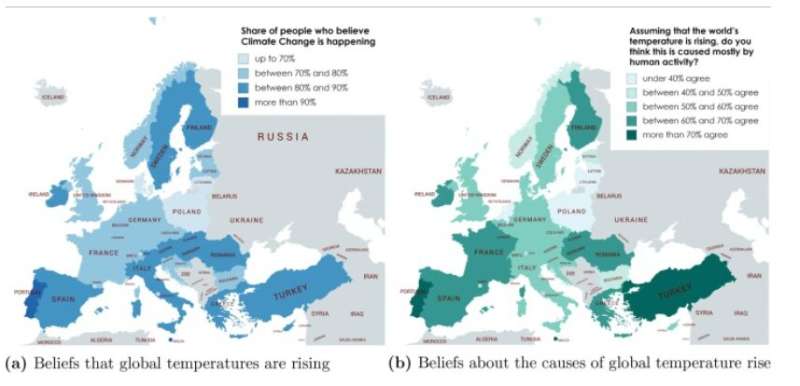What are the drivers of individual climate actions in Europe?

Individual climate actions are an essential pillar for achieving the climate change mitigation goals of the Paris Agreement. The United Nations Framework Convention on Climate Change recognizes the importance of individual efforts and lists specific actions that citizens can take. Even with many potential actions available to citizens, progress towards the Paris Agreement lags behind the targets, and citizen lifestyle changes have yet to make a substantial impact in achieving these goals. An improved understanding of the drivers for climate-positive actions would allow for enhanced policy formulation to stimulate such actions.
The framing and messaging around climate change, its impacts, and the steps people can take have been shown to influence individual climate actions. More specifically, the literature suggests that the climate certainty of citizens, ancillary benefits of climate actions, collective vs. individual efficacy attitudes, social and personal norms, the degree of mindfulness, emotional regulation, and concern for future consequences of action are all relevant determinants of a person's willingness to take climate actions and support climate policies.
Now researchers analyze European citizens' willingness to take climate mitigation action with data on one-time donation choices from a survey of 15,951 people across 27 nations. Responses are explored with an interdisciplinary hybrid choice model that integrates principles of psychology and economics. "The results suggest that only participants who are certain about the reality of global warming and believe it is largely anthropogenic have a significantly higher willingness to donate to climate mitigation compared to groups with less certain beliefs," says principal researcher Johannes Reichl from The Energy Institute at Johannes Kepler University Linz.
Individual drivers of climate action are identified in the perceived ancillary benefits of the actions, psychological factors, individual habits, and exposure to a collective efficacy treatment script. Two results came unexpected for the authors. Firstly, national patterns in the observed donations suggest that increased climate mitigation spending at the country level may decrease citizen-level action and secondly, frequent exposure to extreme weather events is associated with decreased support for mitigation actions. "Finally, the results also highlight the importance of consistent messages about climate change, which may drive varying beliefs and personal norms and their predictors, and suggest key levers that may stimulate actions from specific groups," concludes Dr. Reichl.
The research was published in Global Environmental Change.
More information: Johannes Reichl et al, The drivers of individual climate actions in Europe, Global Environmental Change (2021). DOI: 10.1016/j.gloenvcha.2021.102390
Provided by Charles University Environment Center





















